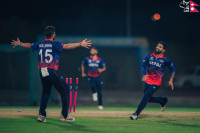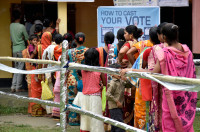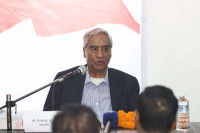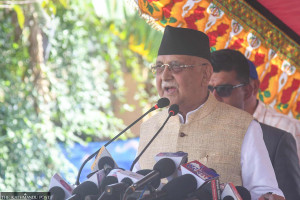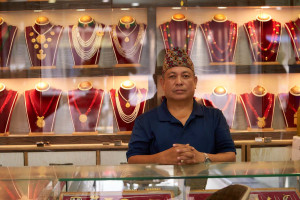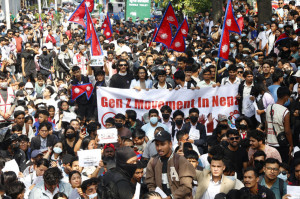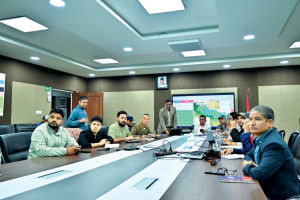Opinion
Equally able
If disabled people receive the support they deserve, they can go beyond themselves in many ways
Nitish Raj Pathak
In early 2013, I was invited to watch a wheelchair basketball game played by ‘disabled’ people. On reading this, many might suggest that I use terms such as ‘differently-abled’ instead of ‘disabled’. But after watching that game, I realised that both the words fail to describe them because they are in fact ‘equally able’.
As I knew absolutely nothing about disabled sports in Nepal, initially, I assumed the game to be lacklustre. I completely underestimated the players, as most of us Nepalis do, just because they were physically handicapped. But as the game progressed, I was excited to see the way they played, with so much energy, commitment and enthusiasm.
Most of us think that people who become disabled lose their confidence, motivation and excitement in life. But while I was watching the game, it never occurred to me that the players had lost some part of their body. Even though they were playing against a far better team, they never gave up. Their fighting spirit and was a treat to watch.
They also had their family members cheering and motivating them. But often, families abandon people with disability, but when they are accepted and backed by their loved ones they gain more than they had lost. Similarly, if the entire nation accepts and motivates them, they are able to do a lot.
An encounter on the streets
Sometime back, I was taking a short cut to reach Putalisadak through Pradarsani Marg when I ran into a blind person who was asking for the direction to go inside Bhrikuti Mandap. I held his hand and guided him from shop to shop, so that he could buy his talking watch. He constantly apologised for all the troubles, even as I kept saying that I was happy to help and obviously not troubled. He asked for another favour; to help him buy handkerchief. Then, I asked him if I could help him catch his bus to Kirtipur and he agreed. Then we started talking about his life and how he lost his eyesight.
“When I was a child I had some minor problems with my eyes,” he told me. “Due to superstition, my parents decided to take me to a witch doctor first. When my sight got worse they took me to a hospital, but it was already too late by then,” he said with a shaky voice. “Since then I cannot see anything.” He wished no other child would face his fate and hoped the government would educate people living in the remote areas about it. “And how do you earn your living?” I asked. “By singing on the street,” he answered graciously. “It is better to sing on the street than beg for money. I am proud of how I earn my living.”
As a volunteer for National Paralympics Committee-Nepal, I have come to realise that many people like him, who are labelled as a burden due to their physical disability, are desperate to prove themselves but lack opportunities.
Nil investment
The Nepali government does not provide a single paisa for disabled sports. Still players are willing to represent their country at an international level through their own expenses. They give their best regardless of proper training and infrastructure.
Nevertheless, the government must introduce plans and policies to provide equal opportunities to the people with disability. Though the new constitution takes a step towards guaranteeing the rights of the disable people in the constitution, they must be put into action. As in developed countries, the Nepali government must allocate budget for disabled sports so that handicapped people get motivated and encouraged. The government must use the power of sports to better their lives. It is just a matter of believing in them, helping them, and giving them opportunities. That is all they need to prove that they are not disabled but equally able people.
Pathak is Secretary of National Para-Athletics Association Nepal




 18.12°C Kathmandu
18.12°C Kathmandu
